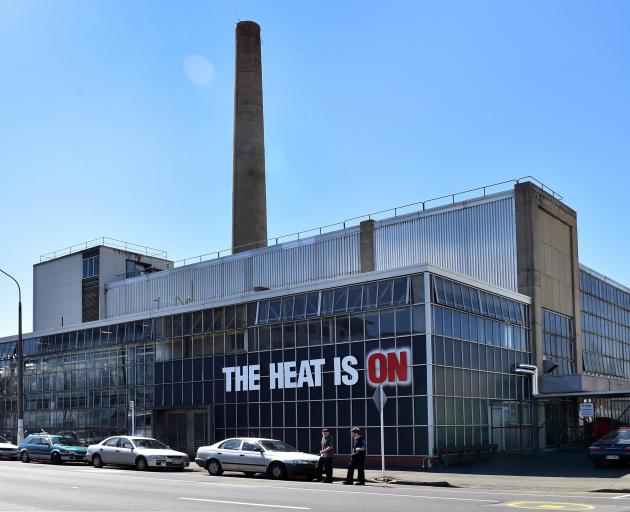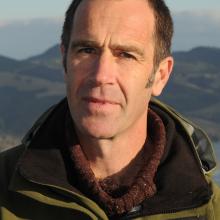
The ducks are aligning behind the prospect of a clean, warm Dunedin, writes Scott Willis.

In Rome, during the process of electing a new pope, the faithful watch for smoke coming from a special chimney atop the Sistine Chapel. Black smoke means no consensus has been reached: white heralds a new pontiff. But sometimes watchers can't tell if the smoke really is white or black.
Waiting for the formation of a new government just over a week ago, it was impossible to divine what colour would waft, figuratively, up from Wellington. But now we have it: a Labour-led government with the Green Party providing confidence and supply and NZ First in coalition. A true MMP government demonstrating a consensus on taking climate action.

The new Government has committed to implementing a zero carbon act, with the goal of zero net emissions by 2050. To do so the Government will establish an independent climate commission and work comprehensively to reduce emissions. This commitment will undoubtedly stimulate innovation and will give a boost to other climate actions already under way around New Zealand.
Opportunities for alignment are already apparent, for example with a recent University of Otago announcement that promises positive local outcomes.
The university's goal of becoming a carbon-zero campus has been underlined by its recent decision to halve greenhouse gas emissions from energy use within three years. This has had an immediate impact. The university's main supplier of heat, the Dunedin Energy Centre will, over the next three years, convert one of its huge coal furnaces to use locally sourced wood-fuels, thereafter providing zero emission heat to the university. The ``how'' of this is a long-term contract. Long-term contracts allow industry to make critical investments in zero-carbon infrastructure.
The significance of this commitment from one of the city's major energy users and a key signatory to the Dunedin Energy Leaders Accord is profound. It means a greening of city energy services.

Another major client of the Dunedin Energy Centre is Dunedin Hospital. While the new Government has confirmed work on a new Dunedin hospital will start within the next three years, we don't know much about the preferred heating supply yet. However, Michael Jack, director of the energy management programme at the University of Otago has run the numbers, and says ``it would be fantastic if Dunedin Hospital would follow the university's lead and also commit to wood fuels. Converting the whole energy centre from coal to wood would reduce Dunedin's greenhouse gas emissions by 27,000 tonnes per year (½half of Dunedin's total greenhouse emissions from coal!). This would then provide an excellent stepping stone for the creation of a future modern biomass-fuelled energy centre to heat the university, the new Dunedin hospital and beyond''.
It might seem obvious that our public health system should be a leader in good practice, but for too long under-investment in our public health system has meant hospitals have faced an impossible dilemma: short-term health services (cheap heat from coal) at the cost of long-term health impacts (local particulate emissions and greenhouse gas emissions leading to climate change and significant adverse health impact).
Of course, the economic registers have been set incorrectly too. With the advent of a more robust emissions trading scheme or a carbon tax, a truer cost of pollution can be assessed. Even so, the cost of heat from biomass at present is only marginally greater than the cost of heat from coal.
The university is a major city energy user switching to biomass, and with the very real potential for a new hospital to incorporate good design in alignment with government objectives, we may be on the verge of an effective emissions reduction pathway for the city.
If two big energy users switch to biomass for heating, the foundations for a comprehensive district heating scheme for the central city are set. This is very important, as the Dunedin City Council, another signatory to the Energy Leaders Accord, has a number of energy hungry buildings in the central city; including the Civic Centre building, Dunedin Town Hall, the City Library, Dunedin Public Art Gallery and Toitu, as well as Moana Pool up the hill. If the council then follows suit, a comprehensive city district heating scheme, an idea that has been discussed and debated for years, can come into being. The university's decision, along with the Government's intentions to take robust climate action and to begin work on the Dunedin hospital may be just the catalyst we need to make real progress on decarbonising our heating supply through a district heating scheme supported by the city's big energy users. It will also contribute to the local economy, a plus for economic development goals, while also ensuring a reduction in harmful local air emissions, a plus for our health.

Imagine now: warm buildings, providing all the services they currently do, but without the greenhouse gas or particulate emissions. You won't notice much difference to begin with, unless you're a business owner in the central city wanting to demonstrate leadership in the transition to a low carbon economy. If you do own a business in the central city you too might want to join a new zero-carbon district heating scheme. But for the rest of us, we'll just get on with things, appreciative of the city leadership and hopefully taking our own steps as well on the zero-emission pathway.
So, over the next three years we can expect to see much action locally in the central city. Conversion of coal furnaces to biomass furnaces at the Dunedin Energy Centre. Planning and work on the design of the new Dunedin hospital initiated, with, we can hope, design for biomass heating at the earliest stage. Interest from the other major energy users in the central city in contributing to the growth of a district heating scheme.
As we watch the colour of the smoke from the Dunedin Energy Centre change over the next three years, we'll also learn the ways in which a government committed to climate action can be enabling and can give meaning to ``regional development''. The smoke indicates a decision reached: we have consensus to take climate action at central government level and in our city.
Scott Willis is the project manager of Blueskin Energy Ltd. Each week in this column, one of a panel of writers addresses issues of sustainability.











